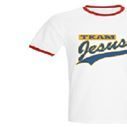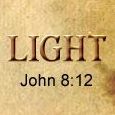Leaderboard
Popular Content
Showing content with the highest reputation on 10/23/2014 in all areas
-
Hi all, I think you will enjoy this once you get past the explanation and see the examples. Typology Scripture is rich in symbolism and of value to study. Images of Jesus (called types) can be seen throughout the Old Testament as well as in direct predictions and promises. Typology is the study of those images. It is important not to go overboard with typology. While the bible is rich in symbolism of Christ in types, it is easy to get carried away and read too much into what the bible says. Therefore it is wise to take this caution to heart: 1) Do not seek types everywhere2) Never press the teaching of the type to such an extent as to change the historical character or event in the bible. The historical events are real but show a prophetic image of the future. Type is defined as an action or occurrence in which one event, person, or circumstance is intended to represent another, similar to it in some respects but of more importance and generally future. Scripture describes a type as “a shadow of good things to come.” Hebrews 10:1 For the law having a shadow of good things to come, and not the very image of the things, can never with those sacrifices which they offered year by year continually make the comers thereunto perfect.Shadows are not exact resemblances, but only give a dark outline: yet with sufficient distinctness to convey some general idea of the body, especially when afterwards we have the body which to compare them. One distinction between a prophecy and a type is that a prophecy is a prediction by something said—a type usually by something done and presented to our sight. (This paragraph is condensed from All the Messianic Prophecies of the Bible by Herbert Lockyer ) Basically a type is a visual prophetic image, but not necessarily an exact image. The bible abounds with examples of this which will be explored in this study. What differentiates a type from a symbol? In all scripture types there is future prophecy. A symbol may represent something past present or future. A type always looks to the future. Types of types (That’s not confusing lol.) There are several classifications of types:1) Types from peopleExample: Adam and Christ2) Types from prescribed offices3) Types from historic eventsExample: Moses and the bronze serpent4) Types from religious rituals5) Types from Levitical offerings6) Types from feasts and festivals Now for some examples to chew on. This is by no means exhaustive list of types, merely a sample. Types from People Types from people are those whose lives or actions illustrate some truth or principle associated with Christ’s character and works. It can be a straightforward illustration or an opposing or contrasting prophetic illustration (called antitype). Adam Romans 5:14 Nevertheless death reigned from Adam to Moses, even over them that had not sinned after the similitude of Adam's transgression, who is the figure of him that was to come. Here Paul states that Adam is the figure (type) of Jesus. Romans 5:17-19 For if by one man's offence death reigned by one; much more they which receive abundance of grace and of the gift of righteousness shall reign in life by one, Jesus Christ.) Therefore as by the offence of one judgment came upon all men to condemnation; even so by the righteousness of one the free gift came upon all men unto justification of life. For as by one man's disobedience many were made sinners, so by the obedience of one shall many be made righteous. 1 Corinthians 15:21-22 For since by man came death, by man came also the resurrection of the dead. For as in Adam all die, even so in Christ shall all be made alive. 1 Corinthians 15:45 And so it is written, The first man Adam was made a living soul; the last Adam was made a quickening spirit. 1 Corinthians 15:47-48 The first man is of the earth, earthy: the second man is the Lord from heaven. As is the earthy, such are they also that are earthy: and as is the heavenly, such are they also that are heavenly. Sin came through Adam. Redemption from sin (life and forgiveness) came through Jesus. This is an antitype to Jesus. One can find many types in Adam. For instance, Adam was the head of God’s original creation. Christ is the head of His new creation, the Church. Adam and Jesus also shared the title of the Son of God, although clearly not meant the same way. Abel Abel was the first one to die a violent death. Both Abel and Jesus were innocent and both were put to death. Hebrews 12:24 And to Jesus the mediator of the new covenant, and to the blood of sprinkling, that speaketh better things than that of Abel. As an antitype, the blood of Abel cried out for vengeance. Genesis 4:10 And he said, What hast thou done? the voice of thy brother's blood crieth unto me from the ground. The blood of Jesus cries out for forgiveness and mercy. Luke 23:34 And Jesus said, Father, forgive them, for they do not know what they do. And parting His clothing, they cast lots. Abraham One of my favorite types in the bible occurs with Abraham in Genesis 22. Genesis 22:2 And He said, Take now your son, your only one, Isaac, whom you love. And go into the land of Moriah, and offer him there for a burnt offering upon one of the mountains which I will name to you. Abraham is called to sacrifice his son. God’s Son was sacrificed for us. Genesis 22:7-8 And Isaac spake unto Abraham his father, and said, My father: and he said, Here am I, my son. And he said, Behold the fire and the wood: but where is the lamb for a burnt offering? And Abraham said, My son, God will provide himself a lamb for a burnt offering: so they went both of them together. Genesis 22:13 And Abraham lifted up his eyes, and looked, and behold behind him a ram caught in a thicket by his horns: and Abraham went and took the ram, and offered him up for a burnt offering in the stead of his son. Isaac is spared and a ram is sacrificed instead, yet Jesus the Lamb of God is indeed sacrificed to pay for our sins years later. Revelation 5:12 Saying with a loud voice, Worthy is the Lamb that was slain to receive power, and riches, and wisdom, and strength, and honour, and glory, and blessing. Isaac and Ishmael The apostle Paul writes about the difference between the new and old covenants as depicted in the type seen in the 2 sons of Abraham. Galatians 4: 22-31 22 For it is written, that Abraham had two sons, the one by a bondmaid, the other by a freewoman.23 But he who was of the bondwoman was born after the flesh; but he of the freewoman was by promise.24 Which things are an allegory: for these are the two covenants; the one from the mount Sinai, which gendereth to bondage, which is Agar.25 For this Agar is mount Sinai in Arabia, and answereth to Jerusalem which now is, and is in bondage with her children.26 But Jerusalem which is above is free, which is the mother of us all.27 For it is written, Rejoice, thou barren that bearest not; break forth and cry, thou that travailest not: for the desolate hath many more children than she which hath an husband.28 Now we, brethren, as Isaac was, are the children of promise.29 But as then he that was born after the flesh persecuted him that was born after the Spirit, even so it is now.30 Nevertheless what saith the scripture? Cast out the bondwoman and her son: for the son of the bondwoman shall not be heir with the son of the freewoman.31 So then, brethren, we are not children of the bondwoman, but of the free. In these verses the apostle illustrates the difference between those who rest in Christ only and those who trust in the law, by a comparison taken from the story of Isaac and Ishmael. Paul contrasts Ishmael, born by a slave, and the Isaac, born by a free woman. The former was born after the flesh, and the other was by promise. Hagar and Sarah prefigure (are a type of) the Old and New Covenants, of Law and Grace, of slavery to sin and freedom through Christ. Types from Historic Events Many to choose from here. I will post on two that Jesus mentioned in the New Testament. Pop quiz. Which two types did Jesus mention in the gospels? (Gasp! She never said anything about quizzes!) John 3:14-15 And as Moses lifted up the serpent in the wilderness, even so must the Son of man be lifted up:That whosoever believeth in him should not perish, but have eternal life. Numbers 21:8-9 And the LORD said unto Moses, Make thee a fiery serpent, and set it upon a pole: and it shall come to pass, that every one that is bitten, when he looketh upon it, shall live. And Moses made a serpent of brass, and put it upon a pole, and it came to pass, that if a serpent had bitten any man, when he beheld the serpent of brass, he lived. Quick background. The Israelites sinned in the wilderness so as punishment, God sent serpents to bite them. Many died. The people repented. Moses made a brass serpent and placed it on a pole, as God instructed, so that those who looked on it would live. Sound familiar? Jesus is lifted up on the cross, so that those who look to Him (believe) are saved from death for their sins. Matthew 12:39-40 But he answered and said unto them, An evil and adulterous generation seeketh after a sign; and there shall no sign be given to it, but the sign of the prophet Jonas: For as Jonas was three days and three nights in the whale's belly; so shall the Son of man be three days and three nights in the heart of the earth. For Jonah’s rebellion against following God’s command to preach to Nineveh , God punished him by having him spend 3 days and nights in the belly of a great fish (whale as the KJV says). Jesus bore our sins on the cross and spent 3 days and nights in the grave. Types from Levitical Offerings There are many examples of this throughout the Old Testament, however I will post on just one. The scapegoat. How can Jesus bear our sins? The twin goats, one of which is the scapegoat provides an answer through its type. Leviticus 16:5-345 And he shall take of the congregation of the children of Israel two kids of the goats for a sin offering, and one ram for a burnt offering.6 And Aaron shall offer his bullock of the sin offering, which is for himself, and make an atonement for himself, and for his house.7 And he shall take the two goats, and present them before the LORD at the door of the tabernacle of the congregation.8 And Aaron shall cast lots upon the two goats; one lot for the LORD, and the other lot for the scapegoat.9 And Aaron shall bring the goat upon which the LORD'S lot fell, and offer him for a sin offering.10 But the goat, on which the lot fell to be the scapegoat, shall be presented alive before the LORD, to make an atonement with him, and to let him go for a scapegoat into the wilderness.11 And Aaron shall bring the bullock of the sin offering, which is for himself, and shall make an atonement for himself, and for his house, and shall kill the bullock of the sin offering which is for himself:12 And he shall take a censer full of burning coals of fire from off the altar before the LORD, and his hands full of sweet incense beaten small, and bring it within the vail:13 And he shall put the incense upon the fire before the LORD, that the cloud of the incense may cover the mercy seat that is upon the testimony, that he die not:14 And he shall take of the blood of the bullock, and sprinkle it with his finger upon the mercy seat eastward; and before the mercy seat shall he sprinkle of the blood with his finger seven times.15 Then shall he kill the goat of the sin offering, that is for the people, and bring his blood within the vail, and do with that blood as he did with the blood of the bullock, and sprinkle it upon the mercy seat, and before the mercy seat:16 And he shall make an atonement for the holy place, because of the uncleanness of the children of Israel, and because of their transgressions in all their sins: and so shall he do for the tabernacle of the congregation, that remaineth among them in the midst of their uncleanness.17 And there shall be no man in the tabernacle of the congregation when he goeth in to make an atonement in the holy place, until he come out, and have made an atonement for himself, and for his household, and for all the congregation of Israel.18 And he shall go out unto the altar that is before the LORD, and make an atonement for it; and shall take of the blood of the bullock, and of the blood of the goat, and put it upon the horns of the altar round about.19 And he shall sprinkle of the blood upon it with his finger seven times, and cleanse it, and hallow it from the uncleanness of the children of Israel.20 And when he hath made an end of reconciling the holy place, and the tabernacle of the congregation, and the altar, he shall bring the live goat:21 And Aaron shall lay both his hands upon the head of the live goat, and confess over him all the iniquities of the children of Israel, and all their transgressions in all their sins, putting them upon the head of the goat, and shall send him away by the hand of a fit man into the wilderness:22 And the goat shall bear upon him all their iniquities unto a land not inhabited: and he shall let go the goat in the wilderness.23 And Aaron shall come into the tabernacle of the congregation, and shall put off the linen garments, which he put on when he went into the holy place, and shall leave them there:24 And he shall wash his flesh with water in the holy place, and put on his garments, and come forth, and offer his burnt offering, and the burnt offering of the people, and make an atonement for himself, and for the people.25 And the fat of the sin offering shall he burn upon the altar.26 And he that let go the goat for the scapegoat shall wash his clothes, and bathe his flesh in water, and afterward come into the camp.27 And the bullock for the sin offering, and the goat for the sin offering, whose blood was brought in to make atonement in the holy place, shall one carry forth without the camp; and they shall burn in the fire their skins, and their flesh, and their dung.28 And he that burneth them shall wash his clothes, and bathe his flesh in water, and afterward he shall come into the camp.29 And this shall be a statute for ever unto you: that in the seventh month, on the tenth day of the month, ye shall afflict your souls, and do no work at all, whether it be one of your own country, or a stranger that sojourneth among you:30 For on that day shall the priest make an atonement for you, to cleanse you, that ye may be clean from all your sins before the LORD.31 It shall be a sabbath of rest unto you, and ye shall afflict your souls, by a statute for ever.32 And the priest, whom he shall anoint, and whom he shall consecrate to minister in the priest's office in his father's stead, shall make the atonement, and shall put on the linen clothes, even the holy garments:33 And he shall make an atonement for the holy sanctuary, and he shall make an atonement for the tabernacle of the congregation, and for the altar, and he shall make an atonement for the priests, and for all the people of the congregation.34 And this shall be an everlasting statute unto you, to make an atonement for the children ofIsrael for all their sins once a year. And he did as the LORD commanded Moses. This is the atonement of sins of all the people, done once a year. Jesus bore the sins of the people and was sacrificed to pay for our sins. The real event of the twin goats and the sacrifice/ scapegoat illustrates prophetically the atonement by Jesus of our sins through His sacrifice. Isaiah 53:6 All we like sheep have gone astray; we have turned every one to his own way; and the LORD hath laid on him the iniquity of us all. Isaiah 53:12 Therefore will I divide him a portion with the great, and he shall divide the spoil with the strong; because he hath poured out his soul unto death: and he was numbered with the transgressors; and he bare the sin of many, and made intercession for the transgressors. 1 Peter 2:24 Who his own self bare our sins in his own body on the tree, that we, being dead to sins, should live unto righteousness: by whose stripes ye were healed. 2 Corinthians 5:21 For he hath made him to be sin for us, who knew no sin; that we might be made the righteousness of God in him. John 1:29 The next day John seeth Jesus coming unto him, and saith, Behold the Lamb of God, which taketh away the sin of the world. Paul discusses this in Hebrews 10. Hebrews 10:1-131 For the law having a shadow of good things to come, and not the very image of the things, can never with those sacrifices which they offered year by year continually make the comers thereunto perfect.2 For then would they not have ceased to be offered? because that the worshippers once purged should have had no more conscience of sins.3 But in those sacrifices there is a remembrance again made of sins every year.4 For it is not possible that the blood of bulls and of goats should take away sins.5 Wherefore when he cometh into the world, he saith, Sacrifice and offering thou wouldest not, but a body hast thou prepared me:6 In burnt offerings and sacrifices for sin thou hast had no pleasure.7 Then said I, Lo, I come (in the volume of the book it is written of me,) to do thy will, O God.8 Above when he said, Sacrifice and offering and burnt offerings and offering for sin thou wouldest not, neither hadst pleasure therein; which are offered by the law;9 Then said he, Lo, I come to do thy will, O God. He taketh away the first, that he may establish the second.10 By the which will we are sanctified through the offering of the body of Jesus Christ once for all.11 And every priest standeth daily ministering and offering oftentimes the same sacrifices, which can never take away sins:12 But this man, after he had offered one sacrifice for sins for ever, sat down on the right hand of God;13 From henceforth expecting till his enemies be made his footstool. This should be enough to get you started on noticing the types in the bible as you read it. It adds to the richness found in God’s word.1 point
-
I'd like to give a triple Amen! to the section in red that I highlighted. It's quite concerning that an event that we have no control over (the timing of the rapture) can cause such division and strife while something that we do have control over (being ready) hardly gets emphasized. The attention that both receive seem inversely proportional to their relevance.1 point
-
I Was Hoping That Out Of The Monies The U.S.A. Will Give Them, Thia Year The U.N. Would Pay All The Bills For The Water And All Of The City's Debit Present And Past And For All Of The Worker's Pensions Both The Full Funding Of Them And For Any Pension Checks Past Due Just To Repay The Citizens Of Detroit For All Their Tax Money Given Over The Years To The UN It Seems A Proper Thing To Due With The UN's USA Funds This Year You Think?1 point
-
For Christians, to be absent from the body, is to be present with the Lord. Where ever He Is, we will join Him.1 point
-
Eph 5:26-33 speaks of Christ preparing the church for Himself as a mystery concerning Christ and the church being joined as a husband and wife. I had always thought that the church is the bride. I understand the nation of Israel being called Jehovah's wife in the old testament and how He took her back again and again inspite of her spiritual adultry. But I never saw that as being limited to the promises concerning the land. Now that we gentiles are included in the family of God by faith, I saw both believing Jews and gentiles making up the bride of Christ. Rom: 7:4 Therefore, my brethern, you also have become dead to the law through the body of Christ, that you may be married to another---to Him who was raised from the dead, that we should bear fruit to God. 11 Cor. 11:2 For I am jealous for you with a godly jealousy. For I have betrothed you to one husband, that I may present you as a chaste virgin to Christ.. Are you saying there are two brides? I see that there is now no division between Jew and Greek, male and female, but all are one in the church, the bride of Christ. I agree that the feast of Tabernacles will be celebrated during the millinium. But in other discussions some have said that we will also celebrate the marriage feast of the Lamb during the millinium. This was a new concept to me that I have yet to find in Scripture.1 point
-
Hippie333, Jesus is looking for a people who will reign over the nations for 1000 years. Not all Christians or resting saints from the OT are ready to do this. Those alive at the first rapture who are not ready will not be taken, but shall pass through the Tribulation if alive at that time. This is a great loss for 1000 years is a long time. When you ask me why it matters whether you hold a false teaching about the rapture and who is raptured or when Jesus returns, not only does God judge your false teaching but the reason behind your false teaching in what is wrong with your heart towards Jesus. Since you reject those first raptured according to readiness accusing them day and night (Rev. 12.10), God takes notice of this whether it is because you are really not saved or because you are not a spiritual Christian but a carnal one, thus not ready yourself to be received and will not receive the reward of returning with Christ to reign over the nations for 1000 years. Missed the point of the question I asked, and also did not provide scripture supporting -two raptures - anything that requires us to be anything other than "ready". Secondly, you are now questioning my salvation - who I am as a Christian - where I am as a Christian. I did not support holding "any" false teaching - I am making the point that where a person is in their understanding of where / when the rapture/ post-trib/ pre-trib/ amill. / premill. - affects ones salvation.....Seems to me one should be more concerned with "being ready" to go - instead of knowing when we go. Your statement above also would make you the absolute authority on Revelation - because if I disagree with your timeline- how you say it happens - I hold to a false teaching. The only reason I made my initial post and still the question I ask - does knowing when the rapture occurs - affect you being part of the rapture....and supporting scripture? God Bless, Hip1 point
-
That is a false statement. Romans states that sin came through the first man...Adam was not deceived as was Eve. He sinned. (Rom 5:12) and yes what Eve did was also a sin...however the Bible nowhere states that Adam was deceived by Eve They committed the same sin but for different reasons...the result was the same for both of them1 point
-
I mean I do not think that those who are in power in our govt are remotely interested in enforcing the laws of this nation. I think they are interested in ways of bypassing laws and working to their own ends.1 point
-
Blessings Enoch Hey Brother,,,,,,I do enjoy reading your posts & we haven't spoken in quite some time,I believe you do know my reasons from refraining from these discussions & you do a fine job of separating fact from fallacy without any input from me,,,,,,I would like to ask you a favor,& you usually end up there anyway-lol..............would you join with me in giving God ALL the Glory for the knowledge He gives us,the Praise & Honor that He alone deserves for the Wonderful,Amazing,Incredible Universe He created for us tho explore & delight in........& of course,let us give thanks to Him that He has given us yet another day to enjoy it all!!!!!!Hallelulyah!!!! Enoch,I just thought you might like this little moment!!!!God Bless you With love-in Christ,Kwik1 point
-
Boaz redeemed the land. He bought the land to gain a wife, Ruth. No, Naomi and Ruth didn't live on their land, until their kinsman redeemer performed his duty. The land in those days was never technically sold, more like what we would think of as leased. The deed holder could transfer use of the family land to someone else, but by law ownership of the land couldn't be transferred permanently out of the family. The practice was to write the description of the property on a document (a deed), roll it up, then write the terms of the lease (the cost to redeem it, who could redeem it, etc) on the outside, with a seal. See Jer 32:6-15, where the deed is described as "sealed and open", and Rev 4, where the scroll is written on both sides and sealed. These all describe and amplify the roll of the kinsman redeemer, as set out in Ruth and given its full expression in Revelation, as another Kinsman Redeemer sets out to take possession of the land He paid for, in order to gain for Himself a bride.1 point
-
Hi justfaith, You have hit on one of the last great truths the Body of Christ has to understand & overcome the false teaching. So look into it very carefully. Here are some of my thoughts with scripture. What is our calling? `Therefore holy brethren, partakers of a heavenly calling..` (Heb. 3: 1) What is our hope? `We give thanks......because of the hope laid up for you in heaven,..` (Col. 1: 5) Where is our citizenship? `For our citizenship is in heaven,....` (Phil. 3: 20) Where is our new body? `For indeed in this house (body) we groan, longing to be clothed with our dwelling from heaven.` (2 Cor. 5: 2) WHAT IS THIS NEW BODY LIKE? It is like Christ. `We know that when He appears, we shall be like Him...` (1 John 3: 2) `God...also predestined (us) to become conformed to the image of His Son.` (Rom. 8: 29) It has a divine nature. `For He (God) has granted ....that you might become partakers of the divine nature,...` (2 Peter 1: 4) It is imperishable. `For this perishable must put on the imperishable...` (1 Cor. 15: 53) It is immortal. `and this mortal must put on immortality.` (1 Cor. 15: 53) It can go through different dimensions. `And their eyes were opened & they recognised Him; & he vanished from their sight.` (Luke 24: 31) As the Apostle Paul warns us - `Let no one keep defrauding you of your prize... & not holding fast to the Head - Christ.` (Col. 2: 18 & 19) `I press toward the goal for the prize of the upward call / on top calling of God in Christ Jesus.` (Phil. 3: 14) Blessings, Marilyn.1 point
-
Uttering the words "the prophet muhamed" is blasphemous to Christians and Jews, he was not a prophet, he was a usurper and charlatan. Where's the outrage? It's been quelled by PC.1 point
-
I am not one to deny that an agent is behind the Cosmos (that being God), but it is all magnificently mysterious. I think the rationale behind this is in keeping with God's nature and His intentions. If we were to observe God in the creative process, what faith would there be required in that? It is not that easy, but it seems to me that God demands faith and doesn't expect us to believe following proof. Because there is none. I think it is just the way it should be. Of course we can look at the majesty of it all and be led in the right direction, but it is faith ultimately that leads to saving grace.1 point
-
No I don't think it's the end by any means. I think we are still beginning to understand and we should not be so quick to write off good research. God's universe is more wonderful and mysterious that we can imagine. You can have the last word.1 point
-
I would encourage you to visit Dr. Tour's website and read for yourself. Then we can discuss if you like. He's a very likable and honest guy.1 point
-
That doesn't make grammatical sense. The clown comes to his hometown. The family of the coming clown will see him at the circus. Would you really read that sentence as 2 clowns? In the same way, why would the coming prince of verse 25 (Jesus) be any different to the coming prince of verse 26? For some reason you are letting your view of history (Romans ruin the city) override what the text is actually grammatically saying: that the coming prince in both verse 25 and 26 are logically the same coming prince. Of course this would then mean that Galileans in fact ruined the city , because Jesus' countrymen were Galileans. You are right in a way, of course same clown. But in Daniel, NOT the same clown or prince. 26 And after threescore and two weeks shall Messiah be cut off, but not for himself: and the people of the prince that shall come shall destroy the city and the sanctuary; and the end thereof shall be with a flood, and unto the end of the war desolations are determined. 27 And HE... One coming prince was titled "Messiah." The other coming prince destroyed the city. You had one clown, but in reality there were two. The Messiah was cut off and did NOT destroy the city. The OTHER one that came and destroyed the city and sanctuary was TITUS, a Roman emperor, not Jesus. A clown will be cut off in his own hometown. The family of the coming clown will see him at the circus. Not necessary that they are the same clown. Those in Galilee did NOT destroy the city, because TWO DIFFERENT PRINCES: one titled "Messiah" and the other a prince with a description to identify him. .And the HE refers back to the last mention: the one that destroyed the city. This is proven by the New Testament and by History. Jesus was cut off, but ANOTHER prince destroyed the city. it is not an easy verse to decipher, but then, we have the book of Revelation and the rest of the New Testament to help. LAMAD1 point
-
Yowza. I'd be pretty careful about re-writing the dozens of translations out there based on a clearly limited understanding of Hebrew syntax. Even the LXX (as translated by pre-Christian jews, presumably without any of our eschatological bias) says the sacrifices are stopped, not the week. So the Bible says 1260 days is 42 months is 3.5 years, but you'd like to use the civil calendar instead. The Bible says the commandment relates to the rebuilding of the wall and moat (which entails the authority to become a city-state), but you say we should use the one that relates to the temple in Ezra. As David was anointed king many years before he became king, so Jesus was anointed (thousands of) years before He will sit on His throne. John the Baptist recognized Him as the (pecach) lamb of God that takes away the sins of the world. He certainly did nothing to fulfill His role as Messiah the King in Luke 4- indeed they tried to kill Him later in that address. And His "my hour is not yet come" statements after these two events indicate He was reserving the announcement for a particular moment. Indeed, as the Pharisees rebuke Him for the (apparent) blasphemy of the people as He enters the city: [Luk 19:41-44 KJV] And when he was come near, he beheld the city, and wept over it, Saying, If thou hadst known, even thou, at least in this thy day, the things [which belong] unto thy peace! but now they are hid from thine eyes. For the days shall come upon thee, that thine enemies shall cast a trench about thee, and compass thee round, and keep thee in on every side, And shall lay thee even with the ground, and thy children within thee; and they shall not leave in thee one stone upon another; because thou knewest not the time of thy visitation. I take this to mean that Jesus held them accountable to have read and understood Dan 9.1 point
-
The bolded part above is not in the Bible, not in any translation. Poor form. The decree by Artaxerxes that fits the prophecy is the one from Nehemiah, in 445BC. (The 3 earlier Ezra decrees relate to the temple, not the city with wall and moat). The years are 360 day years (half of these seven years is 1260 days). ...until Messiah, v25. What was the first occasion when Christ allowed Himself to be presented as Messiah, even pre-arranging the donkey and foal with the innkeeper? -Palm Sunday. Every earlier occasion, when the crowd got excited He would say "my hour is not yet come" or slip through the crowd to escape, or tell those receiving miracles to tell no one. He was reserving the public announcement of his role as Messiah until a particular day, which happened to be 483x360=173,880 days from the going forth of the decree, above. (This is Sir Robert Anderson's analysis, which has its detractors but I think still holds up). v26: "and after 62 weeks (verse 25) (a bunch of stuff happens)". It should be noted that v26 comes between v25 and 27. This is oddly missed by many commentators. Verse 26 describes the interval between the end of the 69th week and the beginning of the 70th week.** Then verse 27 deals with the 70th week, and Rev 6-19 is basically an expansion of Dan 9:27. ------------ **This is one of the incidences of the "church gap" that shows up throughout scripture. The classic example is comparing Luke 4:17-19 with the passage Jesus quotes from in Isa 61:1,2 where Jesus stops his quote at the comma in the middle of Isa 61:2, closes the book, and leaves unsaid "and the day of vengeance..." That "comma" has lasted almost 2000 years.1 point
-
Here’s some thoughts on the book of Ruth. I’ll just assume you’re familiar with the book; if you’re not, it’s short and a very pleasant read, especially the beauty of the dialogue in the KJV. Most generally agree that Boaz is a type of Christ in his roll as the kinsman redeemer (goel). What makes this story interesting typologically though is that Ruth is a gentile. As NT readers, it’s easy to see this as a model of Christ taking His gentile bride, the church. There are lots of elements of the Ruth story that seem engineered to fit this model. [Rth 2:2 KJV] And Ruth the Moabitess said unto Naomi, Let me now go to the field, and glean ears of corn after [him] in whose sight I shall find grace. And she said unto her, Go, my daughter. Right away, Ruth is dropping NT words! It gets better… [Rth 2:6 KJV] And the servant that was set over the reapers answered and said, It [is] the Moabitish damsel that came back with Naomi out of the country of Moab: An unknown servant introduces Ruth to Boaz (compare Gen 24 where Eliezer’s name is left out of the story, as he goes to search for a gentile bride for Isaac; and John 16:13 where the Spirit will not speak of Himself) [Rth 2:14 KJV] And Boaz said unto her, At mealtime come thou hither, and eat of the bread, and dip thy morsel in the vinegar. And she sat beside the reapers: and he reached her parched [corn], and she did eat, and was sufficed, and left. vinegar here, is chomets, and is probably a grape vinegar, or a variant of wine. So here, Boaz offers Ruth bread and wine. We in the church might call that communion. [Rth 3:3 KJV] Wash thyself therefore, and anoint thee, and put thy raiment upon thee, and get thee down to the floor: [but] make not thyself known unto the man, until he shall have done eating and drinking. I suggest that washing (by the water of the Word), anointing (by the Spirit), and putting on raiment (righteousness): [Rev 19:7 KJV] Let us be glad and rejoice, and give honour to him: for the marriage of the Lamb is come, and his wife hath made herself ready. [Rev 19:8 KJV] And to her was granted that she should be arrayed in fine linen, clean and white: for the fine linen is the righteousness of saints. -all speak of the church’s proper relationship and approach to Christ. [Rth 4:9,10 KJV] And Boaz said unto the elders, and [unto] all the people, Ye [are] witnesses this day, that I have bought all that [was] Elimelech's, and all that [was] Chilion's and Mahlon's, of the hand of Naomi. Moreover Ruth the Moabitess, the wife of Mahlon, have I purchased to be my wife, to raise up the name of the dead upon his inheritance, that the name of the dead be not cut off from among his brethren, and from the gate of his place: ye [are] witnesses this day. Next, Boaz buys the field, to get a bride. Compare to John 3:16, or: [Mat 13:44 KJV] Again, the kingdom of heaven is like unto treasure hid in a field; the which when a man hath found, he hideth, and for joy thereof goeth and selleth all that he hath, and buyeth that field. …where the field, from earlier in verse 38, is the world. Christ paid for/redeemed the world, so that out of it He might obtain a bride. So that’s most of the Boaz/Christ and Ruth/church comparison. But what about Naomi? How about looking at her as a type of Israel? Try substituting Christ for Boaz, the NT church for Ruth, and Israel for Naomi in each of the following: For Ruth to come to Boaz, Naomi had to be exiled from her land. Naomi doesn’t return to the land until the bride is ready. It is from Naomi that Ruth learns of the proper way to approach Boaz. Ruth had to make the first move, then Boaz pledged to not rest until he fulfilled his roll as kinsman. (the six measures of meal in Ruth 3:17-18 refers to the creation, and the day before God’s rest.) Naomi never meets Boaz (until after the wedding). Naomi learns of Boaz through Ruth. Throughout jewish history, the book of Ruth is associated with the feast of Pentecost, and is still read in synagogues on that day each year. In their mind, it is appropriate because it comes at the time of the wheat harvest. In my mind, it is appropriate because they both relate to the church!1 point
-
Another separate typology Esther 5:3 promised up to half the kingdom Mark 6:23 Daughter of Herodias promised up to half the kingdom1 point
-
Joseph to Esther / Mordecai Typology Joseph rises to a high position in the Egyptian government through his beauty and wisdom Esther rises to a high position in the Persian government through her beauty and wisdom Josephs good deed(interpreting the butler's dream) is forgotten for a long time Mordecai's good deed(saving the king's life) is forgotten for a long time Joseph: A person refuses to listen "she spoke to Joseph every day but he refused to listen" Genesis 38:10 Esther: A person refuses to listen "they told him every day but he refused to listen" Esther 3:4 Joseph: Pharaoh's chief servant is hanged Esther: The king's chief servant is hanged Joseph reveals his identity to the Pharaoh after a feast Esther reveals her identity to the king after a feast1 point
-
Perhaps you are thinking of Calvin's reformed theology. Lutherans actually teach that a lifestyle of sin will harden your heart and cause you to fall from grace and lose your salvation should you resist the Holy Spirit all of your life.. Luther's theology was evangelical, offering salvation to all who would believe. He chose the name Evangelical for his church. Calvin's reformed theology emphasized everything from God's point of view from eternity, and Luther emphasized things from man's point of view but dared not to go beyond scripture. His view was more balanced saying that we have to take seemingly contradicting scripture by faith. Luther taught salvation by grace through FAITH. But he taught that the Holy Spirit was limited to working through the word of God and the sacraments, I believe that He also works through gifts and is able to speak to us in many ways, such as through object lessons and through hymns, but His voice always agrees with scripture. The longer I have walked with God, the more I have looked back and realized that our whole Christian life is totally dependent on God's unmerited favor or grace. At the time I think it is my own doing or decision, but when I look back I can see how God took away my blindness and set me up to make the right decision. Faith is not of ourselves but a gift from God, lest anyone should boast. That is scripture--not dreamed up by Luther or Calvin. Amazing Grace. Praise God for His mercy and grace that He would reach out to save me. I can't understand it, but can only weep with thanksgiving. Bless His holy Name! Blessings Willa1 point









